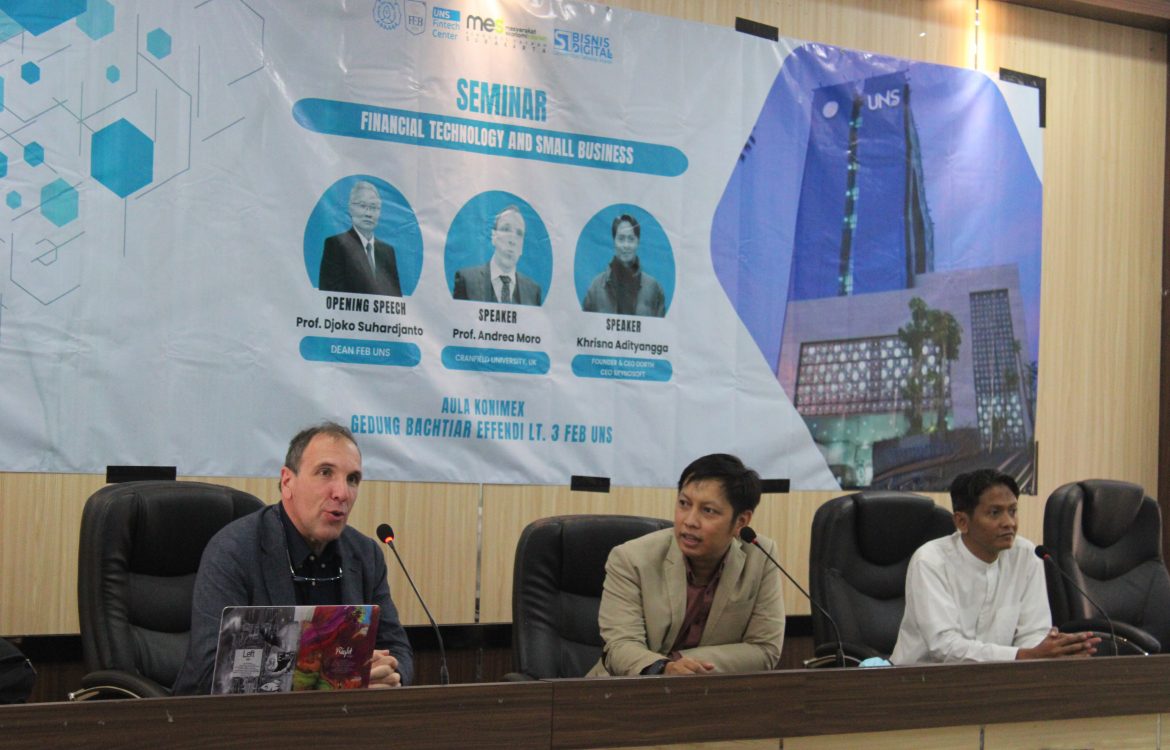
FEB UNS Seminar on Financial Technology and Small Business
A wonderful collaboration between the Faculty of Economics and Business (FEB), Universitas Sebelas Maret (UNS), Digital Business Study Program, PUI Fintech and Banking, and MES (Sharia Economic Community) Surakarta, presented a seminar entitled Financial Technology and Small Business, Wednesday, October 18, 2023.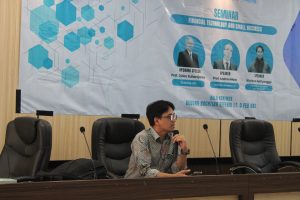
The seminar was held on the 3rd floor, KONIMEX Hall, Bachtiar Effendi Building FEB UNS, where two speakers were invited to deliver materials related to funding for small businesses (MSMEs) and the halal ecosystem. The two speakers invited in this occasion were Prof. Andrea Moro from Cranfield University, UK, and Krishna Adityangga, CEO of PT Xyz Digital Innovation.
Dr. Tastaftiyan Risfandi, Vice Dean of Planning, Partnership, Business, and Information FEB UNS, in his remarks, revealed the importance of understanding funding sources for MSMEs in Indonesia, especially those provided by Fintech. Moreover, students also need to know which financial technology service providers are registered and supervised by the Financial Services Authority (OJK).
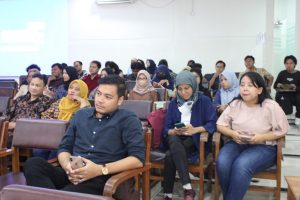 “Welcome to UNS, Prof. Moro and Mr. Krishna. We at UNS always strive to establish networks with the industrial world, for this reason, today we will learn from the invited speakers about MSME funding. I hope we will be able to receive a lot of knowledge from today’s seminar,” explained Dr. Tastaftiyan.
“Welcome to UNS, Prof. Moro and Mr. Krishna. We at UNS always strive to establish networks with the industrial world, for this reason, today we will learn from the invited speakers about MSME funding. I hope we will be able to receive a lot of knowledge from today’s seminar,” explained Dr. Tastaftiyan.
Delivering a material entitled ‘The Black Box of Funding Small Firms,’ Prof. Moro argues that contrary to the general opinion that an entrepreneur only focuses on financial benefits, they often prefer the organic growth of their business. “Entrepreneurs often have less money than regular employees but are more optimistic about their long-term vision. Therefore, they are willing to accept a lower income at the present time,” said Prof. Moro.
Regarding funding, business owners or entrepreneurs prefer funding sources that provide freedom for them to manage the businesses they established. This allows businesses to grow, have greater resources, and with lower interest rates. Furthermore, Prof. Moro explained the types of funding sources including the advantages and disadvantages of each funding source.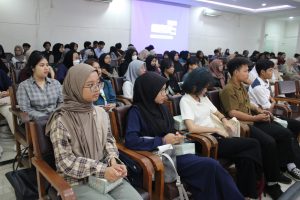
Continuing the discussion related to funders, Khrisna Adityangga stated that the biggest problem faced by small businesses is the difference in expectations between entrepreneurs and investors. Krishna also discussed material entitled ‘Halal Ecosystem in the Digital Transformation of the Decentralized Era: Discourse for Small Business.’
According to him, the main purpose of digital transformation is to reduce moral hazard. Meanwhile, data decentralization, which is a form of digital transformation, can cut supply chains and help to realize data sovereignty. “Decentralized finance essentially is in line with sharia values. MSMEs can receive many benefits from decentralized finance, one of them is the availability of many funding sources. On the other hand, decentralized finance can encourage small businesses to be more transparent, considering that with the use of decentralized finance, business transaction reports can no longer be manipulated,” he explained.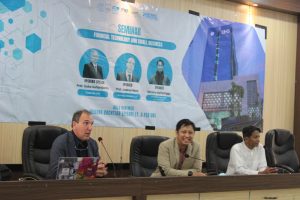
Regarding education in the digital sector, Krishna added that one of the problems faced by MSMEs is related to education, especially related to digital literacy. “Digital literacy in Indonesia is still very low. Therefore, the curriculum carried out by the Digital Business Study Program is very good and useful to be applied in the community, this knowledge can be used to prepare a better business incubation program and encourage the establishment of a good digital business,” he said concluding his material presentation.
The seminar, which lasted for approximately two hours, went interactively with more than 100 participants having the opportunity to interact directly with the speakers through the question-and-answer sessions.

